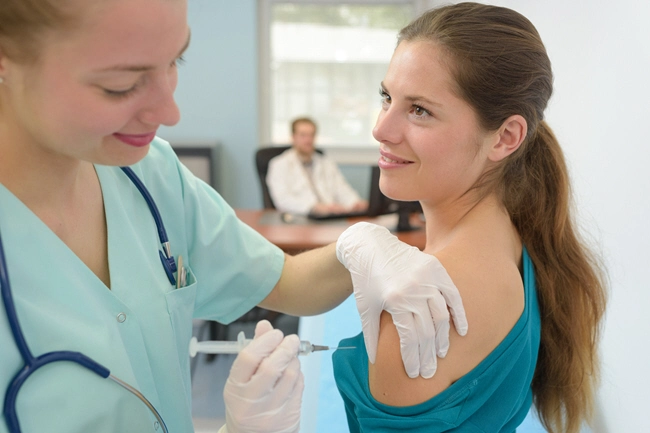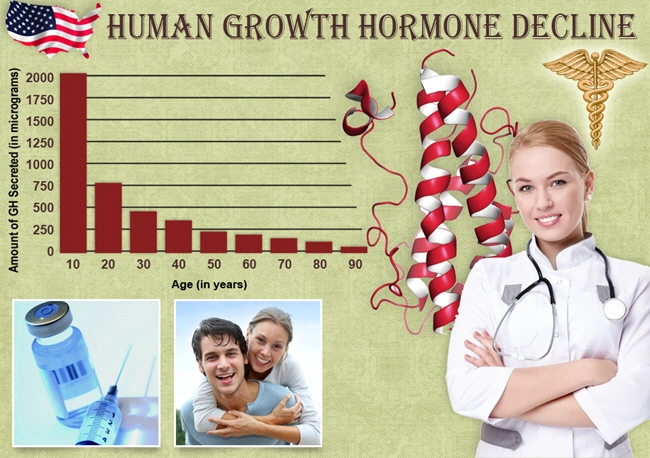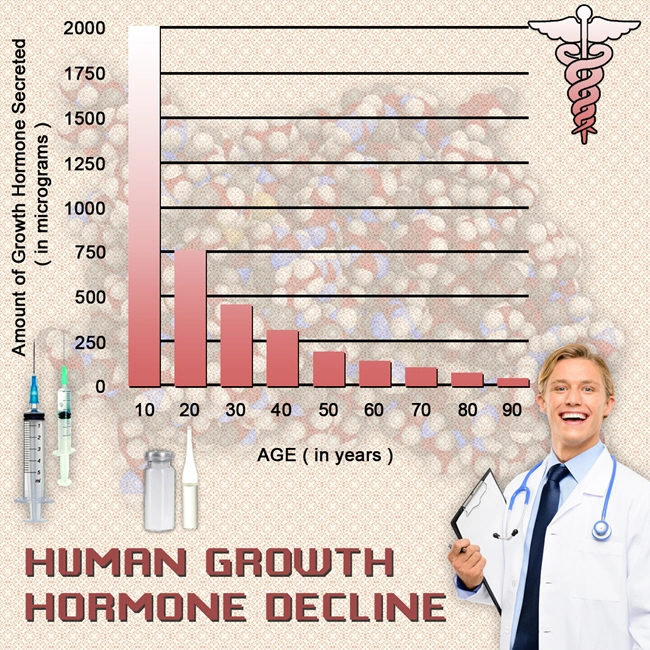
Introduction
Male pattern baldness, clinically known as androgenetic alopecia, is a common concern affecting a significant portion of American men. This condition, characterized by a receding hairline and thinning crown, often leads to psychological distress and a quest for effective treatments. While genetics play a pivotal role, the influence of hormonal imbalances, particularly those involving the endocrine system, cannot be understated. This article delves into the intricate relationship between hormones and hair loss, providing American men with a comprehensive understanding of the underlying mechanisms and potential interventions.
The Endocrine System and Hair Growth
The endocrine system, a network of glands and organs, is responsible for producing and regulating hormones that influence various bodily functions, including hair growth. The primary hormone implicated in male pattern baldness is dihydrotestosterone (DHT), a derivative of testosterone. DHT binds to androgen receptors in hair follicles, leading to a miniaturization process that shortens the hair growth phase and eventually results in thinner, shorter hair.
The Role of 5-Alpha Reductase
The enzyme 5-alpha reductase is crucial in the conversion of testosterone to DHT. Two isoforms of this enzyme, type 1 and type 2, are found in the human body, with type 2 being more prevalent in the scalp. Genetic variations that increase the activity of 5-alpha reductase can elevate DHT levels, thereby exacerbating hair loss. American men with a family history of baldness may inherit these genetic predispositions, making them more susceptible to the effects of DHT.
Hormonal Imbalances and Their Impact
Beyond DHT, other hormonal imbalances can contribute to hair loss. Conditions such as hypothyroidism, hyperthyroidism, and polycystic ovary syndrome (PCOS) can disrupt the delicate hormonal equilibrium, affecting hair growth cycles. For instance, an underactive thyroid can lead to a diffuse type of hair loss known as telogen effluvium, while an overactive thyroid may accelerate hair shedding.
Diagnostic Approaches
Diagnosing the hormonal roots of hair loss involves a multifaceted approach. Blood tests to measure levels of testosterone, DHT, thyroid hormones, and other relevant markers can provide valuable insights. Additionally, a thorough medical history and physical examination can help identify any underlying conditions contributing to hair loss. American men experiencing hair thinning should consult with healthcare professionals to determine the most appropriate diagnostic pathway.
Treatment Strategies
Addressing hormonal imbalances is a cornerstone of managing male pattern baldness. Medications such as finasteride, a 5-alpha reductase inhibitor, can effectively reduce DHT levels and slow hair loss. Topical minoxidil is another common treatment that promotes hair growth by increasing blood flow to the scalp. For those with thyroid-related hair loss, hormone replacement therapy or antithyroid medications may be necessary.
Lifestyle and Dietary Considerations
In addition to medical interventions, lifestyle and dietary modifications can play a supportive role in managing hair loss. A balanced diet rich in vitamins and minerals, particularly zinc, iron, and vitamin D, can promote healthy hair growth. Stress management techniques, such as mindfulness and exercise, can also mitigate the impact of stress-induced hair loss.
Conclusion
Male pattern baldness is a complex condition influenced by a myriad of hormonal factors. Understanding the role of the endocrine system in hair loss empowers American men to seek targeted treatments and adopt holistic approaches to managing this common concern. By addressing hormonal imbalances and embracing a comprehensive care plan, men can navigate the challenges of hair loss with confidence and optimism.
Contact Us Today For A Free Consultation
Dear Patient,
Once you have completing the above contact form, for security purposes and confirmation, please confirm your information by calling us.
Please call now: 1-800-380-5339.
Welcoming You To Our Clinic, Professor Tom Henderson.

- Demystifying the Effects: Unveiling the Medical Significance of Hair Loss [Last Updated On: March 2nd, 2025] [Originally Added On: March 2nd, 2025]
- Exploring the Connection Between Thyroid Health and Hair Vitality: Understanding the Impact of Thyroid Disorders on Hair Growth and Loss [Last Updated On: March 3rd, 2025] [Originally Added On: March 3rd, 2025]
- Unveiling the Silent Saboteur: The Connection Between Scalp Infections and Male Hair Loss in America [Last Updated On: March 3rd, 2025] [Originally Added On: March 3rd, 2025]
- Exploring Surgical Solutions for Hair Loss in American Men [Last Updated On: March 4th, 2025] [Originally Added On: March 4th, 2025]
- Comprehensive Guide to Understanding and Managing Male Hair Loss in America [Last Updated On: March 5th, 2025] [Originally Added On: March 5th, 2025]
- Understanding Pediatric Hair Loss: Causes, Impacts, and Treatment Options [Last Updated On: March 6th, 2025] [Originally Added On: March 6th, 2025]
- Exploring OTC Hair Loss Treatments: Efficacy, Alternatives, and Recommendations for American Men [Last Updated On: March 7th, 2025] [Originally Added On: March 7th, 2025]
- Exploring Medical Wigs: A Vital Solution for Hair Loss in American Males [Last Updated On: March 7th, 2025] [Originally Added On: March 7th, 2025]
- Comprehensive Guide to Holistic Hair Loss Remedies for American Men's Optimal Well-being [Last Updated On: March 8th, 2025] [Originally Added On: March 8th, 2025]
- Genetic Insights into Male Hair Loss: Implications for Prevention and Treatment Strategies [Last Updated On: March 9th, 2025] [Originally Added On: March 9th, 2025]
- Stress-Induced Hair Loss in American Males: A Comprehensive Medical Insight [Last Updated On: March 14th, 2025] [Originally Added On: March 12th, 2025]
- Understanding Hormonal Hair Loss in American Males: A Comprehensive Guide [Last Updated On: March 13th, 2025] [Originally Added On: March 13th, 2025]
- Chemotherapy-Induced Hair Loss in American Males: Causes, Coping, and Future Solutions [Last Updated On: March 15th, 2025] [Originally Added On: March 15th, 2025]
- Understanding Hair Loss: Separating Fact from Fiction for American Men [Last Updated On: March 15th, 2025] [Originally Added On: March 15th, 2025]
- Allergies and Hair Loss: Exploring the Link for American Males [Last Updated On: March 16th, 2025] [Originally Added On: March 16th, 2025]
- FDA-Approved Medications for Hair Loss: A Comprehensive Guide for American Men [Last Updated On: March 17th, 2025] [Originally Added On: March 17th, 2025]
- Monogenic Hair Loss in American Males: Genetics, Impact, and Treatment Options [Last Updated On: March 18th, 2025] [Originally Added On: March 18th, 2025]
- Hair Loss in American Men: A Potential Indicator of Heart Disease Risk [Last Updated On: March 19th, 2025] [Originally Added On: March 19th, 2025]
- Hair Loss in American Men: Psychological Impacts and Coping Strategies [Last Updated On: March 20th, 2025] [Originally Added On: March 20th, 2025]
- Alopecia Universalis: Understanding Causes, Treatments, and Coping Strategies for American Males [Last Updated On: March 20th, 2025] [Originally Added On: March 20th, 2025]
- Diabetes and Hair Loss in American Males: Causes, Connections, and Management Strategies [Last Updated On: March 20th, 2025] [Originally Added On: March 20th, 2025]
- Managing Hair Loss in American Males During Pregnancy: Causes and Strategies [Last Updated On: March 21st, 2025] [Originally Added On: March 21st, 2025]
- Understanding and Treating Hair Loss in American Men: Types, Causes, and Solutions [Last Updated On: March 21st, 2025] [Originally Added On: March 21st, 2025]
- Hair Loss in American Men: Genetic, Age, Stress, and Environmental Factors [Last Updated On: March 21st, 2025] [Originally Added On: March 21st, 2025]
- Antidepressants and Hair Loss in American Males: Insights and Management Strategies [Last Updated On: March 22nd, 2025] [Originally Added On: March 22nd, 2025]
- Topical Treatments for Male Hair Loss: Minoxidil, Finasteride, and Beyond [Last Updated On: March 22nd, 2025] [Originally Added On: March 22nd, 2025]
- Hair Cloning: A Revolutionary Solution for Hair Loss in American Males [Last Updated On: March 23rd, 2025] [Originally Added On: March 23rd, 2025]
- Shock Loss After Hair Transplants: Causes, Timeline, and Management for American Males [Last Updated On: March 23rd, 2025] [Originally Added On: March 23rd, 2025]
- Drug-Induced Hair Loss in American Males: Mechanisms, Culprits, and Management Strategies [Last Updated On: March 23rd, 2025] [Originally Added On: March 23rd, 2025]
- Age-Related Hair Loss in American Males: Causes, Impacts, and Management Strategies [Last Updated On: March 23rd, 2025] [Originally Added On: March 23rd, 2025]
- Essential Vitamins and Hair Loss: Insights for American Males [Last Updated On: March 23rd, 2025] [Originally Added On: March 23rd, 2025]
- Managing Receding Hairlines: Causes, Treatments, and Holistic Approaches for Men [Last Updated On: March 23rd, 2025] [Originally Added On: March 23rd, 2025]
- Revolutionizing Hair Loss Treatment: Innovations in Stem Cells, 3D Bioprinting, and Gene Therapy [Last Updated On: March 23rd, 2025] [Originally Added On: March 23rd, 2025]
- Hair Loss in American Males: Understanding Causes and Restoration Surgeries [Last Updated On: March 23rd, 2025] [Originally Added On: March 23rd, 2025]
- Medical Hair Loss in American Males: Causes, Impacts, and Treatment Options [Last Updated On: March 23rd, 2025] [Originally Added On: March 23rd, 2025]
- Steroids and Male Pattern Baldness: Risks, Genetics, and Mitigation Strategies [Last Updated On: March 23rd, 2025] [Originally Added On: March 23rd, 2025]
- Anabolic Steroids and Hair Loss: Mechanisms, Prevalence, and Management in American Males [Last Updated On: March 24th, 2025] [Originally Added On: March 24th, 2025]
- Revolutionizing Hair Loss Treatment: New Hope for American Males [Last Updated On: March 24th, 2025] [Originally Added On: March 24th, 2025]
- Thyroid Disorders and Hair Loss in American Males: Causes and Treatments [Last Updated On: March 24th, 2025] [Originally Added On: March 24th, 2025]
- Male Pattern Baldness: Advances in Treatment and Understanding [Last Updated On: March 24th, 2025] [Originally Added On: March 24th, 2025]
- Hair Loss Reversal: Success Stories and Effective Treatments for American Men [Last Updated On: March 24th, 2025] [Originally Added On: March 24th, 2025]
- Innovative Strategies to Prevent Hair Loss in American Males Undergoing Chemotherapy [Last Updated On: March 24th, 2025] [Originally Added On: March 24th, 2025]
- Hair Loss in Young American Males: Causes, Impacts, and Management Strategies [Last Updated On: March 25th, 2025] [Originally Added On: March 25th, 2025]
- Hair Follicle Miniaturization: Causes, Impacts, and Treatments for American Males [Last Updated On: March 25th, 2025] [Originally Added On: March 25th, 2025]
- Anemia and Hair Loss in American Men: Causes, Diagnosis, and Management Strategies [Last Updated On: March 25th, 2025] [Originally Added On: March 25th, 2025]
- PCOS in Men: Understanding Hormonal Imbalance and Hair Loss [Last Updated On: March 25th, 2025] [Originally Added On: March 25th, 2025]
- Telogen Effluvium in American Men: Causes, Symptoms, and Management Strategies [Last Updated On: March 25th, 2025] [Originally Added On: March 25th, 2025]
- Post-COVID Hair Loss: Causes, Symptoms, and Management Strategies for American Males [Last Updated On: March 25th, 2025] [Originally Added On: March 25th, 2025]
- Hair Loss in American Men: Societal Views vs. Medical Facts and Coping Strategies [Last Updated On: March 26th, 2025] [Originally Added On: March 26th, 2025]
- AI Revolutionizes Hair Loss Treatment: Precision, Personalization, and Future Innovations [Last Updated On: March 26th, 2025] [Originally Added On: March 26th, 2025]
- Autoimmune Disorders and Hair Loss: Mechanisms, Impacts, and Treatments for American Men [Last Updated On: March 26th, 2025] [Originally Added On: March 26th, 2025]
- Androgenetic Alopecia: Advances in Understanding and Treating Male Pattern Baldness [Last Updated On: March 26th, 2025] [Originally Added On: March 26th, 2025]
- Immune System Disorders and Hair Loss in American Males: Causes, Treatments, and Hope [Last Updated On: March 26th, 2025] [Originally Added On: March 26th, 2025]
- Hair Extensions and Permanent Hair Loss: Risks for American Males [Last Updated On: March 27th, 2025] [Originally Added On: March 27th, 2025]
- High Blood Pressure and Hair Loss: Exploring the Link in American Men [Last Updated On: March 27th, 2025] [Originally Added On: March 27th, 2025]
- Low Light Laser Therapy: A Non-Invasive Solution for Male Hair Loss [Last Updated On: March 27th, 2025] [Originally Added On: March 27th, 2025]
- Aromatherapy for Hair Loss: A Holistic Approach for American Males [Last Updated On: March 28th, 2025] [Originally Added On: March 28th, 2025]
- Postpartum Hair Loss in American Males: Causes, Symptoms, and Management Strategies [Last Updated On: March 28th, 2025] [Originally Added On: March 28th, 2025]
- Advanced Hair Loss Diagnosis: Empowering American Men with New Technologies [Last Updated On: March 28th, 2025] [Originally Added On: March 28th, 2025]
- Rogaine for Hair Loss: Benefits, Risks, and Considerations for American Males [Last Updated On: March 28th, 2025] [Originally Added On: March 28th, 2025]
- Hair Dyes and Hair Loss: Investigating the Link in American Men [Last Updated On: March 28th, 2025] [Originally Added On: March 28th, 2025]
- PRP Therapy: A Promising Solution for Hair Loss in American Males [Last Updated On: March 28th, 2025] [Originally Added On: March 28th, 2025]
- Scalp Psoriasis in American Males: Understanding and Managing Hair Loss [Last Updated On: March 29th, 2025] [Originally Added On: March 29th, 2025]
- Understanding and Managing Hair Loss in American Males: A Guide for Physicians [Last Updated On: March 29th, 2025] [Originally Added On: March 29th, 2025]
- Andropause and Hair Loss in American Males: Causes, Impacts, and Management Strategies [Last Updated On: March 30th, 2025] [Originally Added On: March 30th, 2025]
- Trichotillomania in American Males: Challenges, Treatment, and Support [Last Updated On: March 30th, 2025] [Originally Added On: March 30th, 2025]
- Efficacy of Hair Loss Shampoos for American Men: Scientific Insights and Recommendations [Last Updated On: April 1st, 2025] [Originally Added On: April 1st, 2025]
- Stem Cell Therapy: A Breakthrough in Treating Male Pattern Baldness [Last Updated On: April 3rd, 2025] [Originally Added On: April 3rd, 2025]
- Hair Loss in American Men: Impacts on Mental Health and Coping Strategies [Last Updated On: April 3rd, 2025] [Originally Added On: April 3rd, 2025]
- Minoxidil: Effective Hair Loss Solution for American Men [Last Updated On: April 6th, 2025] [Originally Added On: April 6th, 2025]
- Hair Loss and Mental Health: A Holistic Approach for American Males [Last Updated On: April 7th, 2025] [Originally Added On: April 7th, 2025]
- Central Centrifugal Cicatricial Alopecia: Understanding and Managing Hair Loss in American Males [Last Updated On: April 8th, 2025] [Originally Added On: April 8th, 2025]
- Gut Health and Hair Loss: Understanding the Connection in American Males [Last Updated On: April 8th, 2025] [Originally Added On: April 8th, 2025]
- Hair Loss After Bariatric Surgery: Causes, Management, and Recovery for American Males [Last Updated On: April 9th, 2025] [Originally Added On: April 9th, 2025]
- Hair Breakage vs. Hair Loss: Causes, Differences, and Solutions for American Males [Last Updated On: April 9th, 2025] [Originally Added On: April 9th, 2025]
- Weight Loss Diets and Hair Loss: Insights for American Men [Last Updated On: April 12th, 2025] [Originally Added On: April 12th, 2025]
- Managing Hair Loss in Men: Nutrition, Stress, Smoking, Sleep, and Exercise Strategies [Last Updated On: April 12th, 2025] [Originally Added On: April 12th, 2025]
- Protein Shakes and Hair Loss: Analyzing the Link in American Males [Last Updated On: April 12th, 2025] [Originally Added On: April 12th, 2025]
- Nutrition's Role in Preventing Hair Loss: Essential Nutrients for Men's Hair Health [Last Updated On: April 12th, 2025] [Originally Added On: April 12th, 2025]
- Iron Deficiency and Hair Loss: Supplements and Dietary Solutions for American Males [Last Updated On: April 12th, 2025] [Originally Added On: April 12th, 2025]








